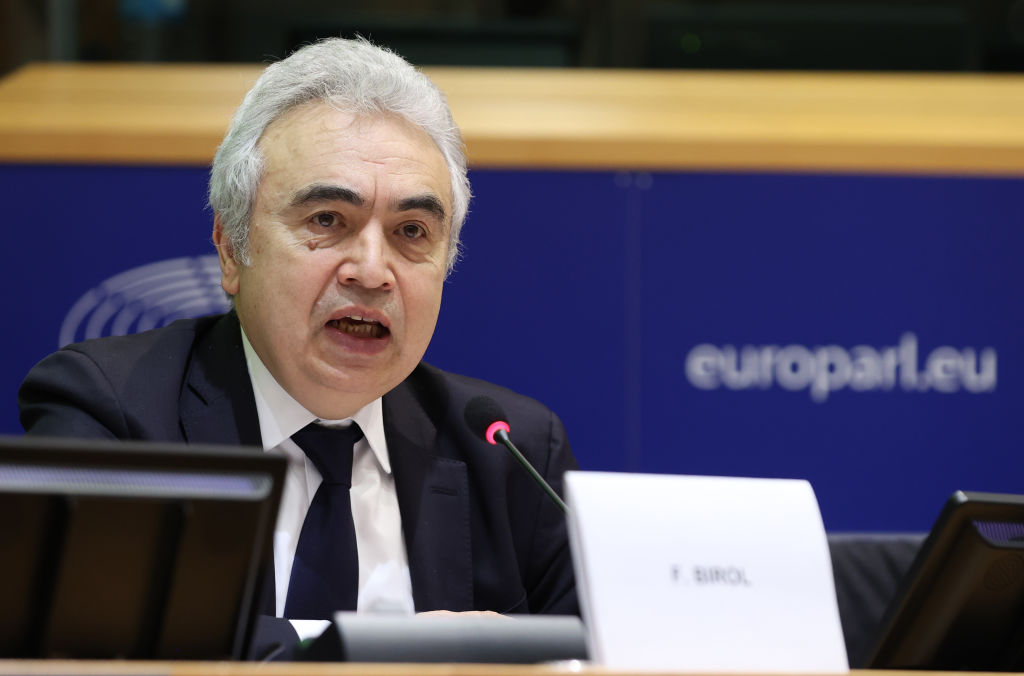
(To get this story in your inbox, subscribe to the TIME CO2 Leadership Report newsletter here.)
Fatih Birol has spent much of the last few years as head of the International Energy Agency (IEA) laying out a path for the world to decarbonize its energy use. The IEA’s recent reports have called for a dramatic scale up in financing for renewable energy and warned that the world cannot afford investment in new fossil fuel supplies.
In a May 25 interview at his office in Paris, Birol told me he is “disappointed” in the energy industry’s lackluster response to climate change. “When they talk, they recognize the importance of climate change,” he said. “But when you look at the numbers there is a major gap.”
To address that gap, Birol tells TIME that the IEA is spearheading a push to get the companies to commit to data-driven targets ahead of the upcoming U.N. climate conference known as COP28 to be held in Dubai this November. “Oil and gas companies need to make some commitments in order to be taken seriously,” he says.
Birol is an economist and he explains his analysis of this situation with a simple look at the numbers. Last year, the companies made $4 trillion in revenue, an enormous increase from pre-COVID numbers. That money could have been used to power the energy transition, but instead companies largely channeled it into dividends, share buybacks, and debt repayment.
To that end, Birol has identified two concrete goals that energy companies should take to align with the net zero ambition. First, oil and gas companies need to commit to cutting emissions from their operations and supply chains—so-called Scope 1 and Scope 2 emissions—by 60% by 2030. An analysis from the IEA found that nearly 15% of global emissions come from the business of getting oil and gas out of the ground and transporting it to consumers.
Second, Birol says fossil fuel companies need to commit to ramping up their investment in clean energy technologies. Last year, oil and gas companies devoted about 5% of their spending to areas outside of their traditional fossil fuel supply business, according to an IEA analysis. That low percentage not only means less capital is flowing into clean technologies but also that the companies aren’t fully utilizing their expertise in a way that could benefit the transition. “They have huge engineering experience, they know how to run major, complex projects,” says Birol. “If we can get them on board, they can really help us to reach our targets.”
Birol says the IEA is currently pushing “very strongly” for oil and gas companies to make those commitments in time for COP28. “There are people who say oil and gas companies have no seat on the table in the COP meeting,” he says. “I think we need to build a grand coalition of governments, energy industry, civil society, and investors who sincerely believe in the fight against climate change.”
But Birol isn’t relying on the urgency of climate alone to make the case to energy companies. He says he points to investment trends to suggest to energy companies that if they move too slowly they risk being left behind. On the morning of our interview, the IEA released a report projecting that more than $1.7 trillion will be invested in clean energy technologies this year, a nearly 25% increase over the last two years. “If I have to give one advice to the companies or investors,” he told me, “they better give a close look at the clean energy investment trends.”
More Must-Reads From TIME
- The 100 Most Influential People of 2024
- The Revolution of Yulia Navalnaya
- 6 Compliments That Land Every Time
- Stop Looking for Your Forever Home
- If You're Dating Right Now , You're Brave: Column
- The AI That Could Heal a Divided Internet
- Fallout Is a Brilliant Model for the Future of Video Game Adaptations
- Want Weekly Recs on What to Watch, Read, and More? Sign Up for Worth Your Time
Write to Justin Worland / Paris at justin.worland@time.com